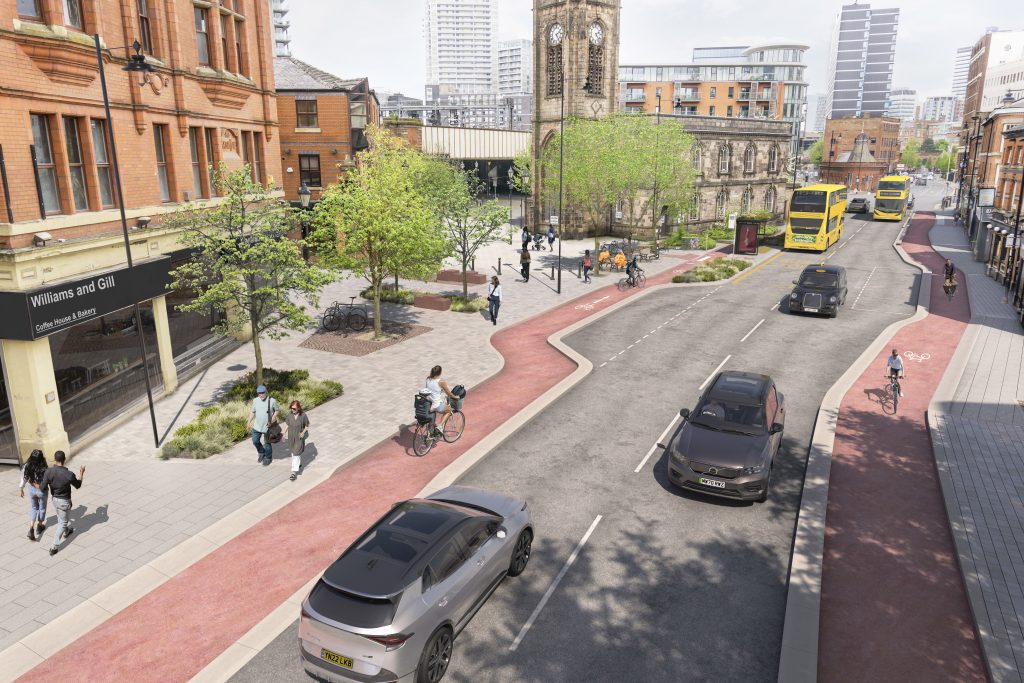
Major changes are set for the roads of Salford, with the City Council awarding a contract for plans to benefit commuters in the area.
The transformation comes after Salford City Council granted £3,896,590, that will transform both Chapel Street and New Bailey.
The project that has awarded a contract to Eric Wright Civil Engineering Limited, who will look to transform a section of Chapel Street on the Bee Network.
The decision made through the Procedure Board, and will also see improvements to the junction of Chapel Street and New Bailey Street.
That will also act as the the final phase of the New Bailey Gateway Project.
With improvements also being made to Chapel Street between New Bailey Street and Blackfriars Street, as part of the Chapel Street East Phase 1 project.
The development is set to take place a part of the wider regeneration of city, with the scheme taking on the ‘complete streets’ approach.
As Salford City Council intend to rebalance the space in favour of pedestrians and cyclists, whilst also catering for buses and general traffic.
The benefits for pedestrians will see improvements that include continuous cycle tracks and footways on either side of the roads.
With pedestrians also having access to developed crossing points and sustainable urban drainage systems.
The plans are set to be a part of wider development for the area, as Salford City Mayor Paul Dennett said: “It is fantastic news that this contract has been awarded.
“The works are part of a long-term plan for the city centre which is designed to make it safer for pedestrians and cyclists with better road crossings and cycling provision.”
He continued: “Improvements will also support the wider regeneration of the area to make it a much more attractive area for people.
“The artists impressions of what the scheme will look like when finished are very impressive and I can’t wait to see works finished and open for everybody to use.”
And although the regeneration of the roads will benefit the future of the city, it also plans to benefit the current local communities.
As Paul Dennett added: “The approval also means that the contractor will use local suppliers and subcontractors where possible.”
With the project also hoping to see work placements as well as staff volunteering hours on community projects.
As he continued: “Staff will use volunteer hours to be spent at local school and college visits with extra support for getting young people aged 16 to 24 into work.”
With the contracts works being approved, it has the opportunity to be an exciting development for the city of Salford for both the future regeneration and the current communities.















Recent Comments